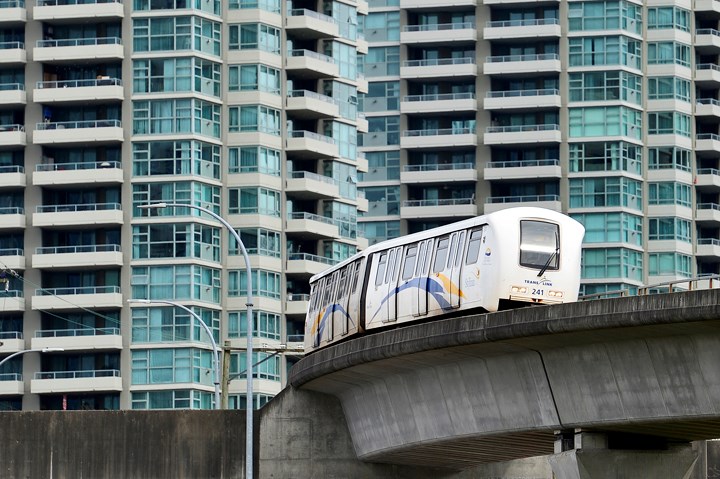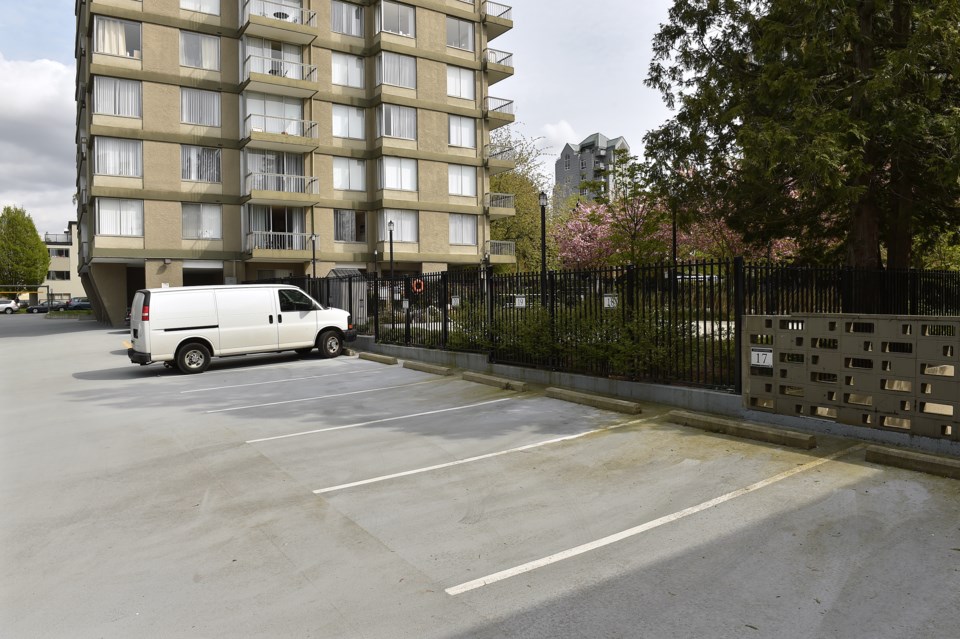People like to complain that there’s never enough parking when they need it, but what if I told you there was too much parking?
Would you storm the NOW office with torches and pitchforks? Likely not, when you can just flay me on social media.
I’m willing to risk this by bringing up an uncomfortable – to some – opinion about the addition of parking spaces.
I bring this up after reading a tweet by Joel Gibbs, who ran for the Burnaby Greens in the 2018 civic election. Unlike most candidates – who say they are on top of civic politics, but disappear until the next election – Gibbs is working his butt off going to council meetings, public hearings and an array of other city meetings, including the housing task force.
Gibbs even live tweets council meetings (you should follow him and NOW reporter Kelvin Gawley for the live tweeting). On Monday night, he tweeted about a public hearing set for Tuesday night for a massive housing project right next to the Gilmore SkyTrain station.
Gibbs drew attention to the city’s formula for parking, which for this project will result in the construction of 1,453 below-ground parking spaces.
Yep, 1,453 parking spaces somehow need to be built right next to a SkyTrain station.
Gibbs said he planned on going to the public hearing, along with this comment: “Join me for another episode of complete climate denial in action tomorrow.”
It’s a fair comment because we’re in a climate emergency and the whole point of putting housing next to transit is so people will use transit and not vehicles.
I read the report by staff about the Onni project and it mentions such warm buzzwords like “walkable neighbourhoods” and “efficiently served by transit.”
“Dawson Street will be developed as a pedestrian-oriented high street.”

And yet, there is a formula in place in which developers have to build so many parking spaces based on the size of the project – resulting in the need for a whopping 1,453 parking spaces. They are below ground, but it’s not about their location, but the conflicting message of being friendly when it comes to transit, cyclists and pedestrians, but still demanding a crap load of parking.
Do we really need this much parking?
That’s a fair question to ask because according to our regional government, a lot of parking connected to housing in our region is a waste.
Metro Vancouver recently presented the 2018 Regional Parking Study to the board of directors, which consists of municipal politicians such as Burnaby Coun. Sav Dhaliwal.
Mike Howell, ace reporter for NOW sister paper the Vancouver Courier, did a nice piece about the parking study.
“It concludes what a similar 2012 study did: there continues to be an excessive number of parking spots at apartment buildings in the region that are not being filled up with cars,” read Howell’s article. “What the study found is that parking supply exceeded utilization by 42 per cent at strata buildings. It was 35 per cent at market rental sites and 41 per cent for mixed tenure and mixed rental.”
Yikes.
Imagine how many of parking spots at the Gilmore project will be empty since it’s right. Next. To. A. SkyTrain. Station. You can also factor in high gas prices and more people are either leaving vehicles at home or not getting them at all – which is a good thing.
I'll be back for the public hearing tomorrow night, including @CityofBurnabyrequiring 1450 parking spaces right next to Gilmore skytrain station.
— Joel Gibbs (@_JoelGibbs) June 25, 2019
Join me for another episode of complete climate denial in action tomorrow.
Find more info here:https://t.co/IrNRHeZpQQ
Adding all these parking spaces also makes housing more expensive.
“Developers will tell you adding parking is costly, takes up space and adds to the price of housing,” read the Howell article. “The accompanying Metro Vancouver report to the study will tell you this: ‘An excessive supply of parking represents an inefficient use of land and capital resources, especially in urban centres and areas along the frequent transit network, and a missed opportunity to reflect evolving transportation choices and to reduce the cost of housing construction.’ That quote is not just the author sounding off, but emphasizing that such data helps inform municipalities’ planning and engineering staff about changes to parking bylaws, rezoning and development reviews, developing area and neighbourhood plans, corridor planning efforts and street parking.”
This isn't some special-interest group saying this stuff. This is our regional government.
You can read Howell’s excellent article here.
Follow Chris Campbell on Twitter @shinebox44.



